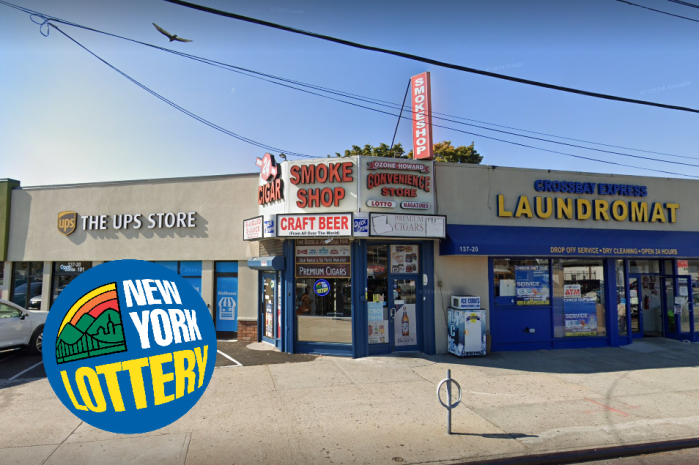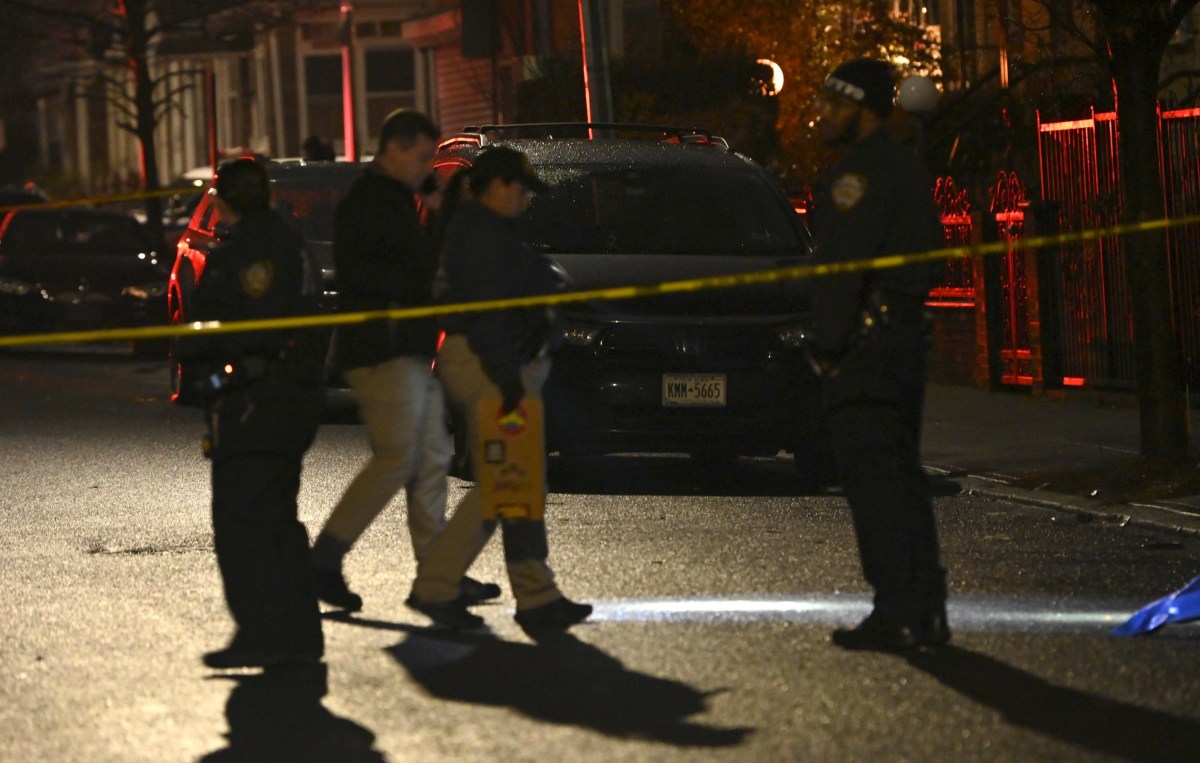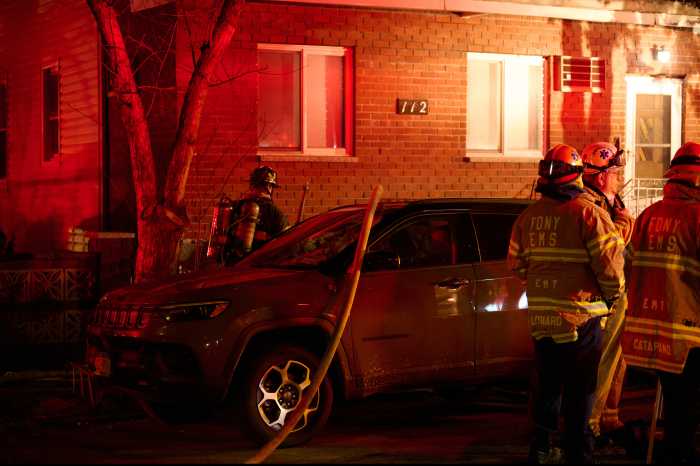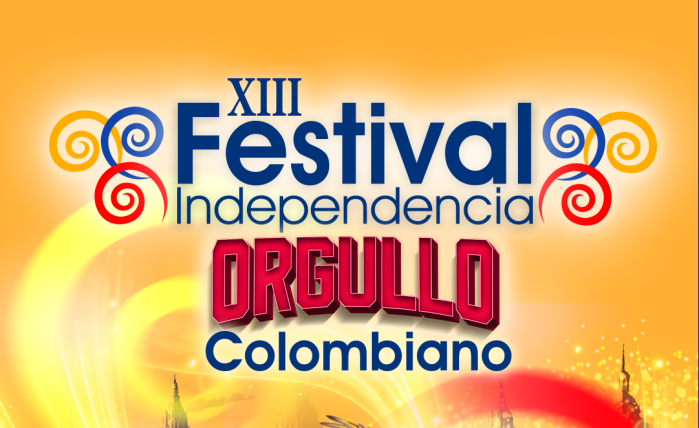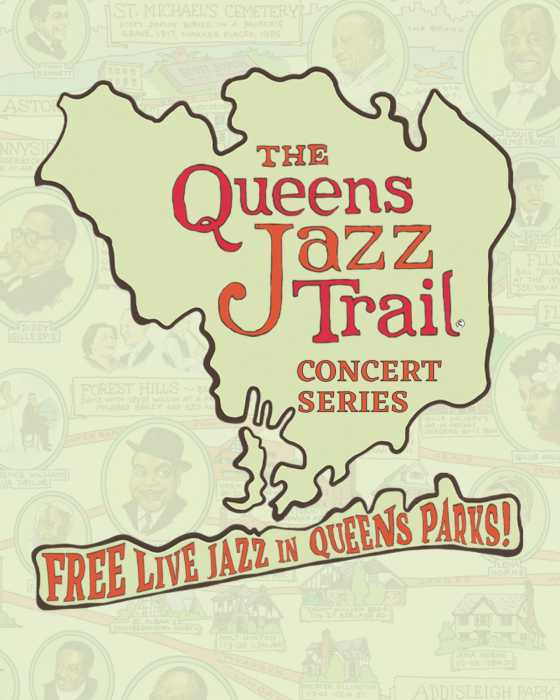Ann Ramjit got taken for a ride. Literally.
On December 11, Marionette Dover, 54, and her two accomplices pulled up next to Ramjit with a story anyone would want to believe.
They had a bag of money in their car and were offering to split it with Ramjit. First, they said, they had to stop at a bank to make sure it was real, according to police.
The suspects told Ramjit, 44, they needed to withdraw $8,000 from her account. The group drove to a Citibank where Ramjit withdrew the money from her account while Dover waited with her.
The group then went to a Sovereign Bank branch on Lefferts Boulevard where Dover took Ramjit’s envelope containing the money and wrote the name of her alleged boss, Carmel, on the outside. She then handed another envelope, also marked Carmel, to Ramjit and told her to go into the bank and ask for an employee of the same name, the report said.
Inside, Ramjit found that no such person worked there. When she returned to the street she found the car and its occupants were gone. According to the police report, Ramjit opened the envelope and inside found fake bills that read, “Bank from Hell.”
This “good faith” scam that Ramjit fell prey to was one of an estimated 40 to 50 such scams in Queens in the last year, according to Sergeant Scott Guginsky, Commanding Officer of the Organized Theft Squad, a specialized unit within the Detectives' Bureau that operates citywide.
According to Guginsky, another version of the scam has fraudsters offering to share the returns of a winning ticket in exchange for help cashing it and “good faith” money to secure the deal.
“If anyone approaches you with a winning lotto ticket or a bag of money, don't pay attention,” he said.
According to Audri Lanford, co-director of ScamBusters.org, a web site aimed at helping people protect themselves from online and offline scams, other schemes to be aware of in the coming year include:
CHARITY SCAMS
Charity scams are rife during the holiday season, but can happen at any time of year. A person claiming to be from a charitable organization asks you for a donation to that cause. Filled with good will, you hand over $5 and go on your way. But instead of buying measles vaccinations for children in developing nations, the money winds up in the fraudster’s pocket instead.
WHAT YOU CAN DO
If you must make a donation to a random person who approaches you on the street, Lanford suggests writing a check instead of giving cash. That way, if you are instructed to write the check to an individual, not a charity, you can be certain it’s a scam.
JURY DUTY SCAMS
You receive a phone call from some official-sounding person who informs you that because you failed to report for jury duty there is a warrant out for your arrest. You protest and say that you never received a summons. While allegedly attempting to rectify the problem, the caller tries to collect personal information about you including your social security and credit card numbers which he or she will then use to try to access your bank account or steal your identity. According to Lanford, seniors especially can fall victim to this scam because they may become flustered at the mention of arrest.
WHAT YOU CAN DO
The New York State Court System does not ask prospective jurors for financial information such as credit card and bank account numbers or for personal information such as names and ages of your family members. Do not provide this kind of information to anyone claiming to represent the Court System and contact the Commissioner of Jurors for Queens County at 718-262-7223 if you receive this type of request.
LOTTERY SCAMS
Once relegated to the Internet, in recent months lottery scams have begun to make their way to unsuspecting victims the old-fashioned way - through the mail. It begins when you receive a fake cashier’s check with instructions on how to cash it in the mail. Normally you are instructed to wire a portion of the winnings back to the sender for various fees, although in some cases you must put up your own money first before receiving the check.
The checks are so convincing that the banks don’t even know immediately that they are bogus. “You won’t know for several weeks,” said Lanford. Once you do, the bank takes back the money and you’re out the amount you wired at the beginning.
WHAT YOU CAN DO
If the allure of free money is too enticing, then be aware that if it were a legitimate lottery, you’d probably be breaking the law. According to Lanford it is illegal for U.S. citizens to participate in overseas lotteries which are, in most cases, where these “winnings” allegedly come from.
More information about these and other scams and how you can protect yourself can be found at www.scambusters.org and www.fraud.org.

